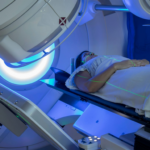
Radiation therapy, commonly referred to as radiotherapy, is a frequently utilized treatment for individuals diagnosed with cancer. It involves the use of high-energy radiation to target and destroy cancer cells, thereby shrinking tumors and preventing their spread. In this comprehensive guide, we’ll explore everything you need to know about radiation therapy, its uses, benefits, side effects, and more.
Understanding Radiation Therapy
Radiation therapy works by damaging the DNA within cancer cells, making it impossible for them to grow and divide. This targeted approach allows doctors to deliver radiation precisely to the tumor site while minimizing damage to surrounding healthy tissues. Radiation therapy can be used as a primary treatment, alongside other therapies such as surgery and chemotherapy, or as a palliative treatment to relieve symptoms and improve quality of life in advanced cancer cases.
Types of Radiation Therapy
Radiation therapy consists of two primary types: external beam radiation and internal radiation, also known as brachytherapy. External beam radiation involves directing radiation beams from outside the body towards the tumor, while brachytherapy involves placing radioactive sources directly into or near the tumor site. The type of radiation therapy used depends on the location, size, and type of cancer being treated, as well as the patient’s overall health and treatment goals.
Uses of Radiation Therapy
Radiation therapy is used to treat various types of cancer, including but not limited to breast cancer, lung cancer, prostate cancer, cervical cancer, and brain tumors. It may be employed as a curative treatment to eradicate cancer cells, as an adjuvant treatment to reduce the risk of cancer recurrence after surgery, or as a palliative treatment to alleviate symptoms such as pain and bleeding in advanced cancer cases.
Benefits and Risks of Radiation Therapy
The primary benefit of radiation therapy is its ability to effectively target and destroy cancer cells, thereby reducing tumor size and preventing cancer spread. However, like any medical treatment, radiation therapy also carries potential risks and side effects. These may include fatigue, skin irritation, hair loss, nausea, and in rare cases, damage to surrounding healthy tissues and organs. It’s essential for patients to discuss the potential benefits and risks of radiation therapy with their healthcare providers before undergoing treatment.
Cost of Radiation Therapy
The cost of radiation therapy in Pune can vary depending on factors such as the type and duration of treatment, the facility where treatment is received, and any additional services or medications required. Patients are advised to consult with their healthcare providers and insurance providers to obtain a comprehensive understanding of the potential costs involved and explore available financial assistance options.
Best Hospital for Radiation Therapy in Pune
When seeking radiation therapy in Pune, patients may consider reputed hospitals with specialized oncology departments equipped with advanced radiation therapy technologies and experienced medical professionals. It’s essential to choose a hospital that offers comprehensive cancer care services tailored to individual patient needs and preferences.
Success Rate of Radiation Therapy
The success rate of radiation therapy varies depending on factors such as the type and stage of cancer, the location and size of the tumor, and the overall health of the patient. In many cases, radiation therapy can effectively control or eliminate cancer, leading to improved survival rates and quality of life for patients.
Living with Radiation Therapy
Many patients can live relatively normal lives during and after radiation therapy, although they may experience temporary side effects such as fatigue and skin changes. It’s essential for patients to follow their healthcare provider’s instructions regarding treatment and self-care practices to manage side effects and optimize treatment outcomes.
Dr. Jagdish Shinde: Leading Oncologist in Pune
Dr. Jagdish Shinde is one of the Best Oncologists in Pune, specializing in radiation oncology. With years of experience and expertise in cancer treatment, Dr. Shinde is dedicated to providing personalized care and innovative treatment options to his patients. As a leading oncologist at Cancer Care Pune in Pimple Saudagar, Pune, Dr. Shinde and his team offer comprehensive cancer care services, including radiation therapy, with a focus on delivering compassionate and effective care to every patient.
FAQs about Radiation Therapy
- What is the cost of radiation therapy in Pune?
- The cost of radiation therapy in Pune can vary depending on factors such as treatment duration and facility, and patients are advised to consult with healthcare providers for personalized cost estimates.
- Which hospital is best for radiation therapy?
- Reputed hospitals with specialized oncology departments and advanced radiation therapy technologies, such as Cancer Care Pune, are recommended for radiation therapy in Pune.
- How much does radiation therapy cost?
- The cost of radiation therapy varies depending on factors such as treatment duration and facility, and patients are advised to consult with healthcare providers for personalized cost estimates.
- What is the success rate of radiation therapy?
- The success rate of radiation therapy varies depending on factors such as cancer type and stage, and overall patient health. However, it can effectively control or eliminate cancer in many cases.
- Can you live a normal life with radiotherapy?
- Many patients can live relatively normal lives during and after radiotherapy, although they may experience temporary side effects such as fatigue and skin changes.
- Is radiation therapy painful?
- Radiation therapy itself is painless, but some patients may experience mild discomfort or side effects during or after treatment.
- What is the risk of death with radiotherapy?
- The risk of death with radiotherapy is extremely low, and healthcare providers carefully plan treatments to minimize risks to surrounding healthy tissues.
- What cancers respond best to radiation?
- Cancers that are localized and have not spread extensively often respond well to radiation therapy, including cancers of the breast, prostate, lung, and head and neck.
- Do you ever fully recover from radiation?
- Many patients recover fully from radiation therapy, although some may experience long-term side effects. It’s essential to follow up with healthcare providers for ongoing monitoring and care.
Summary:
Radiation therapy is a valuable treatment option for cancer patients, offering the potential for effective tumor control and improved quality of life. Patients in Pune can benefit from seeking radiation therapy at Cancer Care Pune, under the expert guidance of Dr. Jagdish Shinde, a leading oncologist dedicated to providing compassionate and personalized cancer care.




